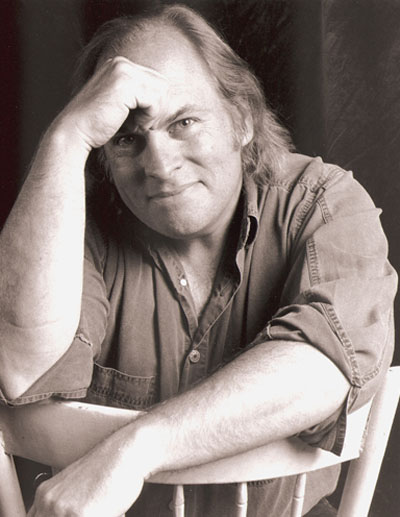
Geoff Hansplant is a lifelong musician in love with the Piedmont style of acoustic blues guitar popularized by players such as Rev. Gary Davis and Blind Blake in the 1920's and 30's and revitalized during the modern era by many contemporary blues artists including: Jorma Kaukonen, Chris Smither, Rory Block and Guy Davis. A sweet sounding blues style, its lyrical, flowing runs are more evocative of a rural musical style than an urban one and its strongly syncopated bass has a great deal to do with the development of what we've all come to know as rock and roll.
Coming of age musically in the late '60's and early '70's, Geoff began as a progressive rock guitarist, embracing the British rock sound of the Moody Blues, Procul Harum and 10CC. But it was late night listenings to the King Biscuit Flower Hour that turned him on to Pentangle, Fairport Convention, the Strawbs and most notably Lindisfarne. "I heard in that music a spirit and power that only comes with tradition. That the music was a continuation of a style handed down through centuries infused it with a certain cachet that upstart rock and roll could not manage. That in turn directed me toward the more traditional folk forms in American music, including the country blues and ragtime music of the late 19th century and early 20th. Hot Tuna was a revelation. As my ears moved away from the dense, heavily produced orchestral rock to the open free-flowing folk blues of Hot Tuna (among others), I found my own musical calling. Now I see a kind of musical holy trinity that consists of the guitar, the listeners ears and the air between and around them."While he is entirely self-taught as a guitarist, Geoff feels that he has learned from the best as a lyricist. "My teachers were the great songwriters of the latter half of the twentieth century. I marveled at the abilities of John Lennon and Alan Hull to say things that were so vast with words and images that were so simple. That Justin Hayward could cut to the heart of an emotion and be grand without being grandiose. That Chris Smither could take the form of the blues and craft songs with a much more complex psychology and yet still be at home against a cover of a Mississippi John Hurt tune. Then I heard Richard Thompson. Frank Sinatra once said, "Somewhere in the world, it's always three o'clock in the morning." I think this is where Richard Thompson's songs are written. My desire is to filter what I've learned from the masters through my own consciousness and experience and craft tunes which speak to the subtleties of the human condition, to paint pictures of my own life and the lives of others from the inside out."
One holdover from the Progressive era that Geoff remains attached to is the idea of the concept album. "I've always gravitated toward that idea that you have an album of material, a song cycle, that is thematically interrelated. Where the songs explore different aspects of a similar theme. As a writer, I approach my work in this way but in truth, sometimes a song just falls off the guitar and you say, "Where'd that come from? I like it." Well, then it's on and you fudge a little."
Geoff's first album on Twilight Tango is a collection of thirteen original songs built on the theme of the journey of life. "I tried to look at life from many of the way stations along the road: hope, disillusionment, fulfillment, regret, faith, loss and mortality."
As for the future, Geoff's heart is set on developing his songwriting craft and seeing just how far he can push his guitar playing. "I've been playing for over thirty years now and every day I still have reason to see myself as a beginner. The guitar is an instrument which reveals itself like the skin of an onion; there's always something new lurking under that which you think you understood. Beyond that, the folk blues genre is one that isn't pigeon holed like some of today's popular styles. You can borrow from anything, incorporate it into your own style and drive the genre in new directions. The feeling as a musician is one of endless renewal. As a songwriter, I want to peel back those onion layers on the human experience. The joy of writing comes in creating a living presence in that song, creating a world inhabited by your characters and letting them do what they do within it. Many times, I'm just as surprised at what they do as the listener. Those are the songs that fashion themselves as bridges between my experience of the world and the listeners' and those are the most rewarding."
For more information on Geoff and his projects, visit his website at: www.geoffhansplant.com